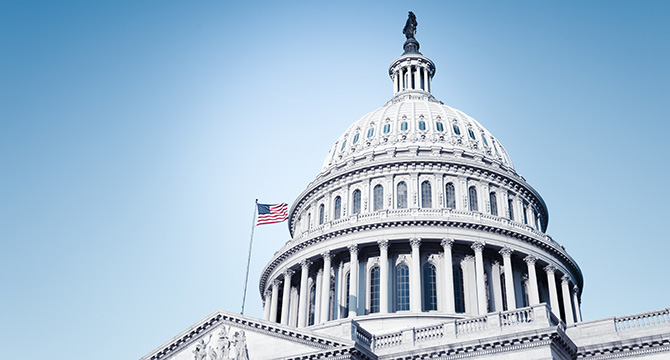
As we noted in this article on PTAB Trial Insights, Senator Hatch (R-UT) has introduced the Hatch-Waxman Integrity Act, which is intended to restore the brand-generic balance many say has been skewed by Inter Partes Review and Post Grant Review proceedings. While the proposed legislation has been summarized as requiring generics to choose between ANDA litigation and IPR proceedings, it goes much further. If enacted, these amendments would require a choice between the ANDA/biosimilar approval pathway and challenging patents in patent office trial proceedings. Is that a real choice or would the law effectively shield pharmaceutical patents from IPR and PGR challenges?
The Hatch-Waxman Integrity Act
The Hatch-Waxman Integrity Act would amend sections of the Federal Food, Drug and Cosmetic Act that provide abbreviated pathways for generic drug or biosimilar product approval.
For generic drugs, any Paragraph IV certification would have to include the following additional certifications:
(i) neither the applicant nor any party in privity with the applicant has filed, or will file, a petition to institute inter partes review or post-grant review of that patent …. and
(ii) in making the certification required under subparagraph (A), the applicant is not relying in whole or in part on any decision issued by the Patent Trial and Appeal Board in an inter partes review or post-grant review ….
Similar requirements also would pertain to Paragraph VIII carve-out certifications.
For biosimilars, the changes would be even more significant relative to the current scheme, requiring a biosimilar application to include:
with respect to any patent that is, or that could be, included on a list of patents under subsection 18 (l)(3)(A)(i), … a certification that neither the applicant nor any party in privity with the applicant has filed, or will file, a petition to institute inter partes review or post grant review of that patent ….
As enacted, the Biologics Price Competition and Innovation Act does not require the biosimilar applicant to address any patents in its application. Indeed, because there is no Orange Book equivalent for biologics, it is not clear how a biosimilar applicant would be able to identify any and all patents that “[are], or that could be, included on a list of patents [that the reference sponsor might identify] under subsection 18 (l)(3)(A)(i)” in its application.
Overall the Hatch-Waxman Integrity Act would prevent both ANDA applicants and biosimilar applicants from challenging patents in patent office trial proceedings, and would bar those who already have challenged relevant patents in an IPR or PGR from seeking FDA approval via an ANDA or biosimilar pathway. Effectively, companies would have to “choose” between relying on the safety and efficacy data of the approved product–in which case they could not challenge the patents by IPR/PGR–and challenging patents in a patent office trial proceedings–in which case they would have to develop their own safety and efficacy data.
As explained in Sen. Hatch’s press release,
Senator Hatch’s amendment … would require a generic manufacturer wishing to challenge a brand-name drug patent to choose between … being able to rely on the drug innovator’s safety and efficacy studies for FDA approval [under the Hatch-Waxman Act or BPCIA], and IPR, which is cheaper and faster than Hatch-Waxman [or biosimilar] litigation but does not provide the advantages of a streamlined generic [or biosimilar] approval process.
By requiring this choice, Sen. Hatch aims to “restore the careful balance the Hatch-Waxman Act struck to incentivize generic drug development,” “prevent alternative procedures for challenging drug patents from tilting the playing field contrary to Hatch-Waxman’s design,” and “ensure that brand-name and generic manufacturers alike have the proper incentives to develop life-saving medications.”
Does The Hatch-Waxman Integrity Act Present A Hobson’s Choice?
Although the Hatch-Waxman Integrity Act still would let companies “choose” between the ANDA/Biosimilar approval process and challenging patents in an IPR/PGR proceeding, most generic and biosimilar companies probably would view it as a Hobson’s choice. As expensive and lengthy as patent litigation can be, the costs, time and risks associated with developing new safety and efficacy data are likely to be many times greater. Thus, the likely effect of this legislation would be to shield Orange Book-listed patents and patents pertaining to approved biologics from IPR and PGR challenges.
